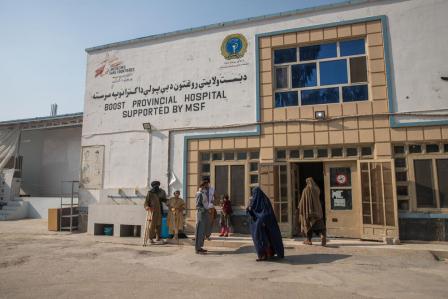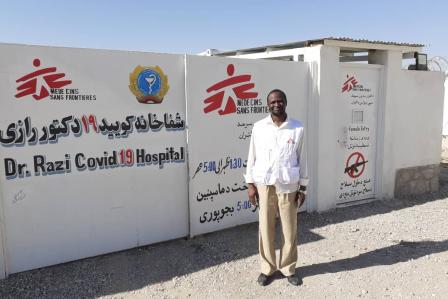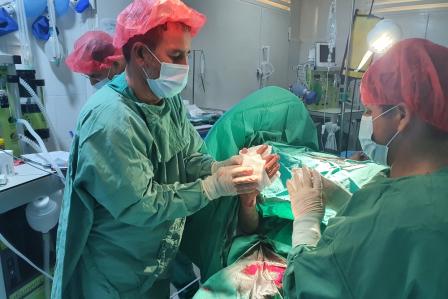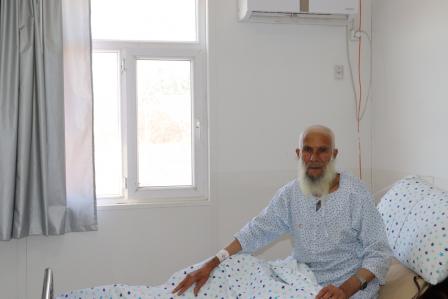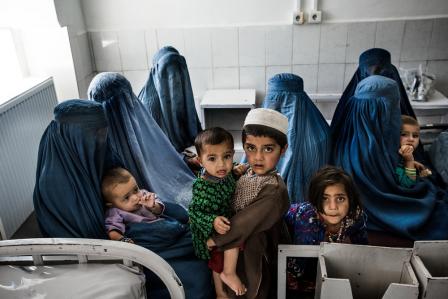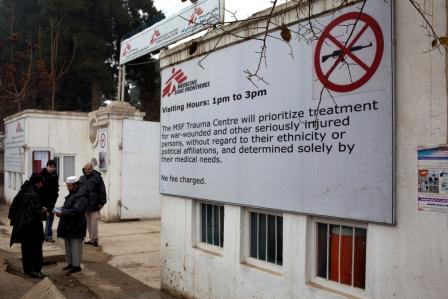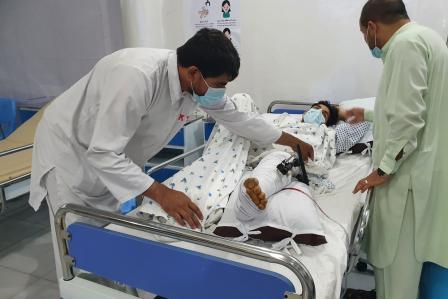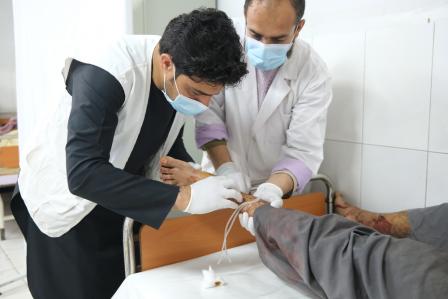Delivering essential medical services in Afghanistan
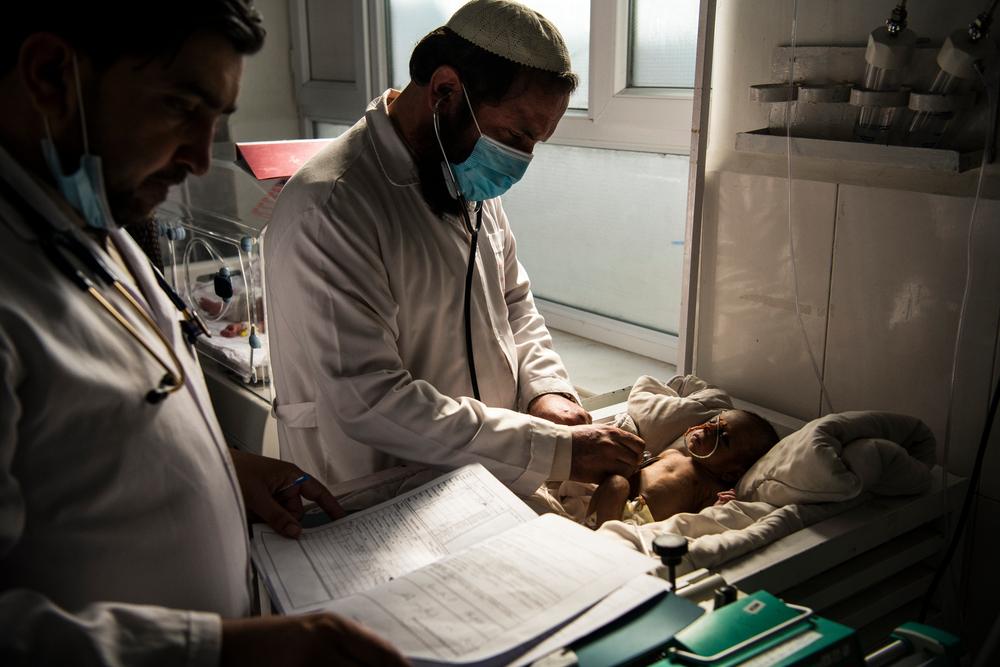
Dr Daud, head of paediatrics, and paediatrician Dr Asadullah Mal examine a patient in the neonatal intensive care unit (NICU) at Boost Hospital, Helmand's primary provincial hospital in the capital Lashkar Gah. © Andrew Quilty
Our medical facilities in 5 provinces -- Herat, Kandahar, Khost, Kunduz, and Lashkar Gah -- are open and running. We are treating patients injured in the fighting and providing medical care to those suffering from a variety of medical conditions. As the fighting has ceased, many of our facilities are now full with patients finding it easier to access our services at this time.
Herat
Governmental healthcare staff and their implementers working for other organisations in Herat have not received salaries for months. Many Ministry of Public Health staff are looking for work in private clinics, in addition to their regular jobs, to make ends meet.
The third wave of COVID-19 is on a downward trend, but we are looking at how we can prepare for the inevitable fourth wave. Vaccination coverage remains low. Discussions to increase the capacity of the Doctors Without Borders COVID-19 treatment centre to 1,00 beds are currently underway.
Our in-patient therapeutic feeding clinic (ITFC) at Herat Regional Hospital is facing a critical situation. The facility was initially set up with 40 beds, but to cope with the seasonal increase in malnutrition we set up temporary wards in tents outside the regional hospital to increase the bed capacity to 60. The number of hospitalisations has, however, now reached 200 per cent of our bed capacity. We would have expected the number of admissions to decrease by now as the seasonal fluctuation comes to an end, but instead we are consistently admitting between 90 and 100 children every day. This is most likely representative of the lack of functioning health services in the area, the economic downturn, inflationary pressures in the marketplace and persistent drought conditions faced by the population. The team are working on installing insulated containers to increase capacity and to prepare for the winter, which is fast approaching.
On the outskirts of Herat, Doctors Without Borders continues to provide outpatient care, treatment for non-communicable diseases, and sexual and reproductive health services at the Kahdestan clinic. Once the fighting ended, we witnessed a significant increase in people coming to the clinic, as others in the area suspended their activities. There were up to 400 patients per day, compared to 300 per day in July. We now see the number reducing as other providers are returning and reopening, meaning there is a slight increase in the offer of health services.
Key figures (6–12 September)
- The Kahdestan clinic carried out over 1,900 consultations, including 111 for antenatal care (48 of which were first antenatal consultations). Children under 5 accounted for over 25 per cent of all consultations, mostly for acute watery diarrhoea and respiratory tract infections.
- Over 60 new ITFC admissions for the third week in a row.
- 695 suspected COVID-19 cases triaged at the Herat Regional Hospital, an average of around 100 per day down from nearly 300 per day during the peak of the third wave.
Kandahar
During the fighting, Doctors Without Borders was able to continue its care for drug-resistant tuberculosis (DR-TB) outpatients by providing remote consultations and buffer stocks of medication to avoid them having to cross frontlines to access care. TB care is continuing today and we have a small number of inpatients in our DR-TB centre. At Mirwais Regional Hospital, Doctors Without Borders is screening patients for TB.
In early September the team started running a mobile clinic for people living in informal settlements near the border with Pakistan, in the town of Spin Boldak. In the last two weeks the teams have provided 540 consultations, nearly half for children under five. The majority of people are presenting with respiratory infections, diarrhoea, and gastrointestinal problems. On 14 September, water trucking and water chlorination started as well, to help provide clean water.
Key figures (6–12 September)
- 33 DR-TB outpatient consultations for follow up and contact tracing: 4 DR-TB in patients receiving treatment in our TB centre.
- 131 patients screened for TB at Mirwais Regional Hospital.
- 540 consultations through mobile clinics at Spin Boldak
Khost
The Doctors Without Borders Khost maternity hospital previously concentrated on women with complicated deliveries but is continuing with its widened admission criteria, to ensure that pregnant women from across Khost province have access to medical care in order to give birth safely. We are seeing an increase in patients and deliveries each week.
Private clinics are seeing significantly fewer patients than a month ago, as the deteriorating economic situation means that people aren’t able to afford to pay for treatment.
Doctors Without Borders supports eight comprehensive health centres (CHC) run by an organisation that is funded by the World Bank, which has suspended its funding to Afghanistan. This lack of funding means that those people running the CHCs are unable to pay staff or buy medication and supplies. Staff are continuing to work but it is getting more and more difficult.
Key figures (6–12 September)
- 481 admissions to Khost maternity hospital (68 per day)
- 407 deliveries (58 per day)
- 35 babies admitted to our neonatal ward
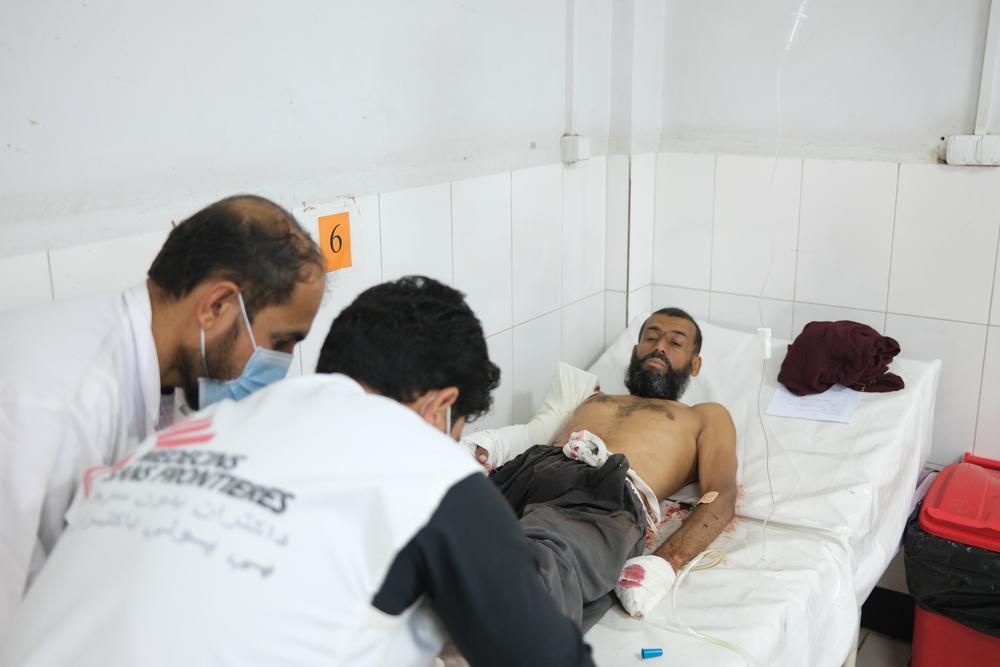
Mahmood was shot while he and his family fled their home outside Lashkar Gah. © MSF/Tom Casey
Lashkar Gah
The hospital in Lashkar Gah remains very busy, and on some days our Emergency Room has been receiving around 800 patients. The 300 inpatient beds are full. This high number of patients is in large part caused by the fact that other facilities are not, or hardly, functioning. Including those funded by the World Bank. This was already an issue during the fighting in August, but with international funding being suspended the situation keeps deteriorating. Another contributing factor to the large influx of patients is that people for whom before it was difficult to reach the hospital because they would have to cross frontlines can now more easily access healthcare.
Key figures (6–12 September)
- 5,387 Emergency Room consultations (around 770 per day)
- An average of 77 malnourished children receiving treatment in the ITFC each day
Kunduz
We are continuing to gradually expand the capacity of the Kunduz Trauma Centre, which opened earlier than initially planned. We are mostly seeing people injured in road traffic accidents and people injured by the fighting who have complications.
The health system in Kunduz continues to be strained as experienced medical staff continue to leave the province, including senior health administration officials. The staff who remain have not been paid for several months and often come to work for only a few hours a day. Medical and logistical supplies continue to be lacking in the public health system, and the main regional referral hospital continues to rely on donations from the few humanitarian actors that retain some presence in the country.
Key figures (6–12 September)
- 153 patients triaged in the trauma centre
- 102 patients treated in the inpatient department
- 34 surgical procedures
Doctors Without Borders continues to provide essential medical services in Afghanistan because medical emergencies don’t stop in times of conflict and upheaval.
Watch this interview of Dr Evangeline Cua, Hospital Clinical Director of Doctors Without Borders in Kunduz as she talks about the situation in Afghanistan, and the medical support they are providing to the patients who were caught in the crossfire of the conflict.
